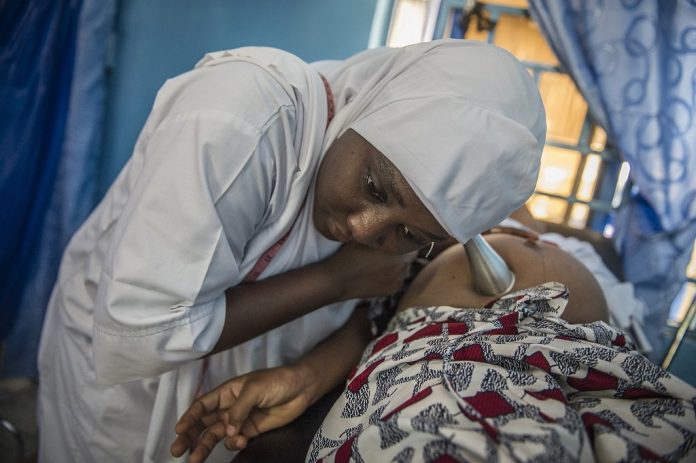A consultancy firm, Sydani Group, has developed Embrace Model, an innovative framework, designed to address the dearth of Skilled Birth Attendants (SBA) in Nigeria.
Its Embrace Model Project Lead, Mrs Hilda Ebinim, disclosed this while speaking with the News Agency of Nigeria (NAN) in Abuja on Monday.
Ebinim said that the model would also help in addressing insufficient healthcare professionals and Human Resources for Health (HRH).
According to her, the deficit of health professionals is a global concern and poses a significant threat to achieving health objectives, with about 10 million workers needed by 2030.
She recalled that statistics revealed that in 2021, infant mortality rate stood at 62 deaths per 1,000 live births, while maternal mortality rate was around 1,050 per 100,000 live births in 2020 in Nigeria.
She said that Nigeria currently had only 1.95 healthcare workers per 1,000 residents, in spite of ongoing policy efforts and intervention strategies over the years to address the challenge.
The official said the firm developed the model following a learning agenda it undertook to understand the Nigeria’s HRH landscape, with support from Bill and Melinda Gates Foundation.
“The agenda focused on SBAs at Primary Healthcare Centers (PHCs) which synthesised existing information, developed a solution model and conduct case studies.
“The learning agenda culminated in the development of the Embrace Model, an innovative framework designed to address the multifaceted issues surrounding skilled birth attendants in Nigeria.
“Embrace emphasises the interconnectedness of various systemic and contextual factors, including management, financing, and information systems which are crucial for optimising the production, distribution, retention and motivation of SBAs.
“It posits that addressing the HRH crisis requires a comprehensive approach that integrates multiple elements of the healthcare system,’’ she said.
She added that the model advocated targeted, context-specific interventions that could lead to significant improvements in healthcare outcomes, particularly in maternal and child health.
The expert also recommended that strategic reforms such as enhanced training programmes, improved retention strategies, strengthened HRH management systems, data-driven decision making and collaborative partnerships were needed to improve the situation.
She said the model, which focuses on the interconnectivity of various factors that influence the availability and quality of skilled birth attendants, also provides a comprehensive framework for improving healthcare outcomes in the country.
The project lead also said that the project discovered disparities in the availability, production, and management of skilled birth attendants across different states.
Ebinim stated that gaps were identified between the number of trained personnel and the needs of the population, with significant variations in HRH distribution.
“The National HRH Profiling conducted in 2022 by the National Primary Healthcare Development Agency (NPHCDA) indicated that there are only 5,768 midwives available in 25,840 PHC facilities across Nigeria.
“This is falling short of the required 38,974 midwives as recommended by the Ward Health System.
“This leaves a deficit of approximately 33,206 midwives, particularly impacting rural communities,” she said.
She said that intentional steps needed to be taken to prevent non-healthcare professionals from taking deliveries, leading to continuous increase in infants, child and maternal mortality rate. (NAN)


